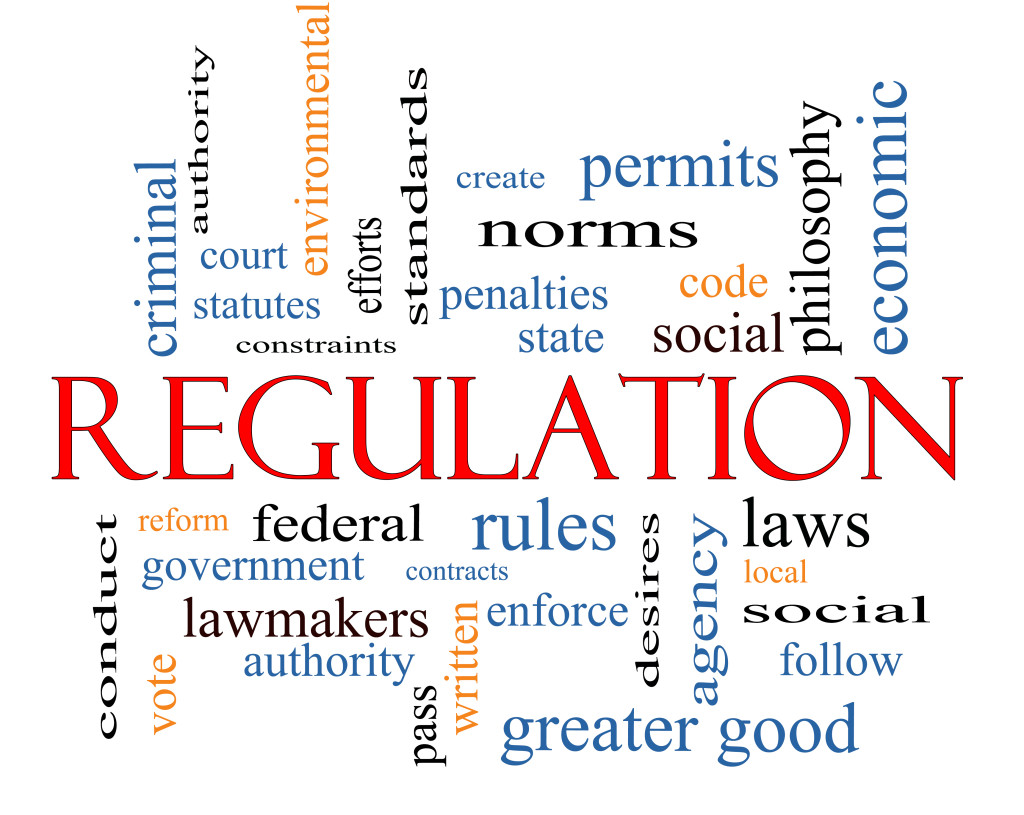Corporate Law 101 – Securities Lawyer
Because only issuers can go public and have their securities publicly traded, it is necessary for many unincorporated businesses to set up corporate entities before beginning their going public transactions. Companies going public should have a basic understanding of corporate law and what it means to conduct business through a corporate entity. This blog post addresses the most common questions we receive from small businesses about setting up and operating a business as a corporate entity.
What Does It Mean To Be A Corporation?
A corporation is a distinct legal entity separate and apart from its shareholders or owners. Corporations are incorporated pursuant to the state law in which the Corporation is formed. Corporations can take various forms including C-Corporation, S-Corporation, Limited Liability Company, and Professional Corporation (also known as a Professional Association). A Corporation’s existence is perpetual, unless dissolved by its Board of Directors or the state where it is formed, as for failure to pay required annual fees and/or file annual reports. Read More
Can I Amend My Form 10-K? Going Public Attorneys
 A company may desire to change information presented in its Annual Report on Form 10-K for a number of reasons. Form 10-K amendments can be used to correct any material inaccuracies, misstatements or omissions that a company subsequently discovers. As such, the SEC allows a company to file an amendment to its Form 10-K. Read More
A company may desire to change information presented in its Annual Report on Form 10-K for a number of reasons. Form 10-K amendments can be used to correct any material inaccuracies, misstatements or omissions that a company subsequently discovers. As such, the SEC allows a company to file an amendment to its Form 10-K. Read More
What Is a Consent of Auditor? Going Public Lawyers
Item 601 of Regulation S-K requires issuers to file a Consent of Auditor as an exhibit to certain forms and files with the SEC including registration statements under the Securities Act of 1933, as amended (“Securities Act”). A company’s Independent registered public accounting firm must provide a Consent of Auditor (an auditor’s consent and audit report) in the Securities Act registration statements and Annual Reports on Form 10-K. Read More
SEC Amends Related Party Disclosure Rules – Going Public Lawyers

Annual reports on Form 10-K are just around the corner for companies with a December 31, year-end. We have received several questions concerning recently adopted Public Company Accounting Oversight Board (PCAOB) Auditing Standard No. 18, Related Parties. The new rule applies to all issuers and SEC registered broker-dealers and become effective for audits of financial statements for fiscal years beginning on or after December 15, 2014. The new rules are designed to increase auditor identification and evaluation of companies’ significant unusual transactions and to enhance understanding of companies’ financial relationships and transactions with their executive officers. Read More
What Is The Section 1145 Exemption? Securities Lawyer 101

Securities law issues are an important consideration in structuring a Chapter 11 reorganization, particularly where the debtor is a public company. Section 1145 of the Securities Act of 1933, as amended (“Securities Act”) provides issuers in Chapter 11 reorganizations with an exemption from registration that eases some of the burdens of Chapter 11 reorganization. An important requirement of the Section 1145 exemption is not available to an underwriter. Read More
Can I Issue Free Trading Shares Under Rule 504? Going Public Lawyers

Despite numerous SEC enforcement actions, Rule 504 of Regulation D of the Securities Act remains a commonly misused exemption particularly in dilution schemes. The popularity of Rule 504 is simple – the Rule 504 exemption provides a way for dilution funders to issue illegally free trading shares using baseless legal opinions. Any experienced going public lawyer will tell you that Rule 504 does not allow a company to issue unrestricted shares. Read More
SEC Charges Frederick Elm and Elm Tree Investment Fund LP
 On January 21, 2015, the Securities and Exchange Commission (the “SEC”) announced fraud charges and an asset freeze against a Fort Lauderdale, Florida-based investment advisory firm, its manager, and three related funds in a scheme that raised more than $17 million since November 2013.
On January 21, 2015, the Securities and Exchange Commission (the “SEC”) announced fraud charges and an asset freeze against a Fort Lauderdale, Florida-based investment advisory firm, its manager, and three related funds in a scheme that raised more than $17 million since November 2013.
The SEC’s complaint filed in federal court in the Southern District of Florida charged Elm Tree Investment Advisors LLC, its founder and manager, Frederic Elm, and Elm Tree Investment Fund LP, Elm Tree “e”Conomy Fund LP, and Elm Tree Motion Opportunity LP. According to the complaint, Elm, formerly known as Frederic Elmaleh, his unregistered investment advisory firm, and the three funds misled investors and used most of the money raised to make Ponzi-like payments to the investors. Read More
Who Has To File Form 144?

Rule 144 of the Securities Act of 1933, as amended provides a safe harbor for certain public resales of securities, if certain conditions are met. Rule 144 applies to unregistered shares acquired directly from an issuer, (“restricted securities”), and unrestricted shares held by an affiliate of the issuer (“control securities”). Under some circumstances, persons who rely on Rule 144 must file a “Notice of Sale” on Form 144 with the Securities and Exchange Commission (the “SEC”). This blog post addresses some recent questions we received about the SEC’s requirements for filing a Form 144 – Notice of Sale. Read More
Just What Is A Security Anyway? – Going Public Lawyers
Below is a teaser from the new e-book by Michael T. Williams, a going public lawyer and Best-Selling Amazon E-Book author. The book will be available to the public in a few weeks.
Your are only subject to federal and state securities laws if you are selling what is defined as a “security.” If you are selling stock in your IPO Alternative transaction, you know you are selling a security. But Section 3(a)1 of the Securities Act of 1933 tells you all kinds of other instruments you sell may also be securities, as follows:
The term “security” means any note, stock, treasury stock, security future, security-based swap, bond, debenture, evidence of indebtedness, certificate of interest or participation in any profit-sharing agreement, collateral-trust certificate, preorganization certificate or subscription, transferable share, investment contract, voting-trust certificate, certificate of deposit for a security, fractional undivided interest in oil, gas, or other mineral rights, …, or, in general, any interest or instrument commonly known as a “security.” Read More
What Happens If I Forget To File My Form D? Going Public Lawyers
The most common exemptions from registration for both public companies and private companies seeking to go public are those provided by Regulation D of the Securities Act of 1933, as amended (“Securities Act”). Many issuers who go public do not realize that the filing of a Form D with the Securities and Exchange Commission (the “SEC”) is required in Regulation D offerings. Form D is a notice of an exempt offering of securities in reliance upon Regulation D (or Section 4(6) of the Securities Act). Form D requires specific information about the issuer and the offering it is conducting. This information includes (i) the issuer’s identity, (ii) its principal place of business and contact information, (iii) its state of domicile, (iv) the names and addresses of its executive officers and directors, (v) the specific exemption claimed under the Securities Act, and (vi) the identity and contact information of any broker-dealer, finder or other person receiving any commission or other similar compensation relating to the sale of securities in the offering. Read More
Do I Have to Disclose Payments To a Finder?
Companies seeking capital are frequently approached by intermediaries who offer to locate investors in exchange for a fee. Most intermediaries also known as “finders” are not registered as broker-dealers with the Securities and Exchange Commission (the “SEC”). These intermediaries wear many hats and may refer to themselves as fund managers, receivers, turnaround experts, investment bankers, stock promoters, placement agents, business brokers, investor relations firms or consultants. They may be attorneys, CPAs, insurance brokers, custodianship shell purveyors or other market participants. Often these intermediaries claim that they do not need to be registered with the SEC or FINRA as broker-dealers because of a “finder’s exemption”. Read More
How Do I Spin-Off My Subsidiary? Going Public Lawyer
A spin-off (“Spin-off”) involves a transaction in which a parent company (“Parent”) distributes shares of its subsidiary (“Subsidiary”) to the Parent’s shareholders so that the Subsidiary becomes a separate, independent company. Spin-off shares are usually distributed on a pro-rata basis. A going public lawyer can assist the company in determining whether state corporate law and the rules of stock exchanges require shareholder approval of the spin-off. Read More
FINRA Expels John Thomas Financial & Bars Tommy Belesis
On January 9, 2015, The Financial Industry Regulatory Authority (“FINRA”) announced that a hearing panel expelled John Thomas Financial, and barred its Chief Executive Officer, Anastasios “Tommy” or “Thomas”) Belesis, from the securities industry for violations in connection with the sale of penny stock issuer, America West Resources, Inc. (“AWSR”) common stock, including trading ahead of customers’ orders, recordkeeping violations, violating just and equitable principles of trade, and for providing false testimony. The FINRA hearing panel also ordered John Thomas Financial and Belesis to pay $1,047,288, plus interest. Additionally, John Thomas Financial and Belesis were suspended for two years and jointly and severally fined $100,000, and John Thomas Financial’s Chief Compliance Officer Joseph Castellano was suspended for one year and fined $50,000, for harassing and intimidating registered representatives. Read More
What Is SEC Form 5 & When Is It Due? Securities Lawyer 101

Section 16 of the Securities Exchange Act of 1934 requires that officers, directors and holders of more than 10% of a company’s equity securities disclose their ownership of, and transactions in, equity securities, including stock options, warrants and other convertible securities. Section 16 requires that such persons file an Annual Statement of Changes in Beneficial Ownership on Form 5 with the Securities and Exchange Commission (the “SEC”). SEC Form 5 reports any transactions in the Company’s equity securities that the reporting person engaged in during the company’s most recently completed fiscal year that were not previously reported on a Form 4, other than transactions that are exempt from Form 5’s reporting obligations. Read More
What Is a Reverse Merger Super 8-K? Going Public Lawyer
The Securities and Exchange Commission (“SEC”), Division of Corporate Finance frequently notes disclosure failures of reverse merger transactions in Form 8-K also known as “Super 8-K”. This blog post summarizes SEC staff comments in response to reports on Form 8-K reporting of reverse mergers with public shell companies and similar transactions that result in a public company no longer being designated as a shell company. These include that the issuer provide “Form 10 information” including audited financial statements in a Super 8-K.
Super 8-K’s disclosure requirements for reverse merger transactions are expansive and in most respects and comparable to the disclosures found in a registration statement under the Securities Act of 1833, as amended (the “Securities Act”). In addition to these requirements, issuers must comply with FINRA’s notice requirements under Rule 6490. Reverse merger issuers often find their securities subject to Depository Trust (“DTC”) scrutiny, DTC Chills and global locks because of the presumption of fraud associated with reverse mergers. Read More
And The Beat Goes On – Tennessee Adopts Crowdfunding
While the SEC (after 700 days) has not adopted its final equity crowdfunding regulations, Tennessee’s entrepreneurial efforts have moved forward. Tennessee’s new crowdfunding law known as “Invest Tennessee Exemption” became effective on January 1, 2015. The new law allows Tennessee-based companies to engage in intrastate crowdfunding. The Invest Tennessee Exemption requires that the offering comply with the federal intrastate offering exemption provided by Section 3(a)(11) of the Securities Act of 1933, as amended. Read More
What is a Form 144 Notice of Sales? Going Public Lawyer
Rule 144 requires that a “Notice of Sale” on Form 144 be filed by any person for whose account the securities are being sold if the person is an affiliate at the time of sale, or was an affiliate during the 90 days preceding the sale, and is selling more than 5,000 shares or the shares being sold have an aggregate sale price of more than $50,000.
Public Availability of the Rule 144 Notice Filing
Form 144 is publicly available upon filing through the SEC’s EDGAR database. Rule 144(h) states that Form 144 must be filed only by the person for whose account a sale is being made under the rule. Read More
Paying Consultants & Stock Promoters With Stock – Going Public Lawyers
It has become almost routine for OTC Markets listed issuers to pay for consulting services with their restricted shares of common stock. The tradability of shares that can be issued to consultants is impacted by whether the company issuing the shares is reporting with the Securities & Exchange Commission (“SEC”) and whether the issuer has ever been a shell company (“Shell Company”) as defined by Rule 405 of the Securities Act of 1933, as amended.
Non-Reporting Issuers
For non-reporting companies, such as OTC Pink issuers, the company usually enters into an employment agreement with the consultant and/or service provider. The employment and/or consulting agreement should address the term of service, compensation and scope of services to be provided. Assuming the issuer is not presently and has never been a shell company, the shares can be resold after a period of twelve months in reliance upon Rule 144 of the Securities Act of 1933, as amended (“Securities Act”).
Shell Companies
Rule 144 imposes limitations on the use of Rule 144 by Shell Companies. If a company has at any time been a shell company, Rule 144 is unavailable until 12 months after the issuer files Form 10 information with the SEC. Read More
When Is Form 10-K Due? Securities Lawyer 101
A public company must file an annual report on Form 10-K following the end of each of its fiscal year. The first Form 10-K deadline is 90 days after the end of the first fiscal year in which the issuer becomes subject to the periodic reporting requirements of the 1934 Act. After the first year the Form 10-K deadline depends upon whether the issuer is an acceleratged filer, large accelerated filer, non-accelerated filer or smaller reporting company. Each category is summarized below:
Accelerated Filer
An accelerated filer is an issuer that: Read More
DTC Conspiracy Theories Continue In 2015
We continue to receive inquiries from management and shareholders of public companies about the Depository Trust Company (“DTC”). Many of these people assert that there is a larger DTC conspiracy in the works. Frequently, companies engaging in certain types of reverse merger transactions find their securities without DTC eligibility. A closer review of these transactions reveals that in most instances the reverse mergers involved public shells that were illegally acquired by the shell purveyor. Read More
What is Stock Scalping ? Securities Lawyer 101
Stock promoters often engage in what is known as stock scalping. Stock scalping is the illegal and deceptive practice of recommending that others purchase a security while secretly selling the same security. In recent years, the SEC and Justice Department have brought an increasing number of cases alleging securities violations for stock scalping activity.
The Role of the Stock Promoter in Stock Scalping Schemes
Stock Promotion entails the dissemination of information about a publicly traded company intended to increase its stock price and trading volume. The person who publishes this information is called a “promoter” or a “stock tout.” Read More




























